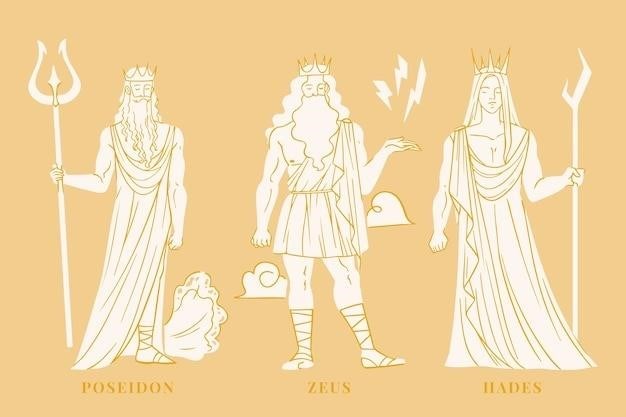
Things Fall Apart⁚ A Critical Analysis
Chinua Achebe’s seminal novel masterfully portrays the clash between traditional Igbo society and encroaching colonialism. Okonkwo’s tragic fate symbolizes the devastation of a culture facing an overwhelming force.
Chinua Achebe’s Things Fall Apart stands as a cornerstone of postcolonial literature, published in 1958. It boldly challenged the predominantly European narratives that had previously dominated representations of Africa. Achebe’s work offered a powerful counter-narrative, providing an indigenous perspective on the devastating impact of colonialism on Igbo society in pre-colonial Nigeria. The novel is not merely a historical account; it’s a profound exploration of cultural collision, identity crisis, and the enduring legacy of imperialism. Achebe’s masterful storytelling illuminates the complexities of a society grappling with rapid and disruptive change, forcing readers to confront the lasting wounds inflicted by colonial powers. He achieves this through vivid characterization, particularly Okonkwo, whose struggle embodies the broader societal struggle. The novel’s impact extends beyond its historical context, resonating with contemporary discussions of cultural preservation, the ethics of globalization, and the ongoing effects of historical injustices. By centering the narrative on the Igbo people, Achebe reclaims their voices and challenges the dehumanizing stereotypes perpetuated by colonial narratives. He humanizes the colonized, revealing their rich culture, intricate social structures, and deep-rooted spiritual beliefs, thereby offering a nuanced and complex portrayal of a people often reduced to simplistic tropes. The novel’s enduring relevance lies in its ability to spark critical conversations about power dynamics, cultural preservation, and the continuing effects of colonialism on societies worldwide. It’s a testament to Achebe’s literary genius and his commitment to giving voice to the marginalized and unheard.
II. The Ibo World Before Colonialism
Achebe meticulously crafts a vibrant portrait of pre-colonial Igbo society, revealing a complex social structure governed by tradition and intricate customs. Umuofia, the central village, thrives on a deeply ingrained system of kinship ties, age grades, and communal responsibility. The novel depicts a society where individual identity is inextricably linked to the collective, highlighting the importance of lineage and ancestral veneration. Religious beliefs form the bedrock of Igbo life, with a rich pantheon of gods and spirits deeply interwoven into daily existence. The earth goddess, Ani, holds a central position, representing fertility and the interconnectedness of life and the land. Spiritual practices permeate social life, influencing everything from agriculture and child-rearing to conflict resolution and governance. The intricate balance of power between different village groups and clans, their relationships, and their internal hierarchies are clearly illustrated. Achebe emphasizes the self-sufficiency and the relative prosperity of the Ibo people before the arrival of European influence, portraying a society with a robust social order and a unique cultural identity. The detailed descriptions of Igbo life, including their traditions, customs, and beliefs, create a vivid and immersive experience for the reader, offering a glimpse into a world rich in cultural depth before the disruption caused by colonialism. This detailed depiction serves as a crucial backdrop against which the destructive impact of colonialism can be fully appreciated.
A. Traditional Social Structures
Umuofia’s social fabric is intricately woven with a hierarchical system built upon kinship and age grades. The extended family unit forms the cornerstone of Igbo society, providing both support and social control. Lineage and ancestry are paramount, determining social standing and access to resources. Age grades, distinct groups based on age cohorts, play a significant role in governance and social organization. Each grade has specific responsibilities and privileges, contributing to the overall stability of the community. The title-holding system, while not strictly hereditary, reflects achievement and social standing, granting influential members considerable authority within the village. This structure ensures a balance between individual ambition and collective well-being. The council of elders, composed of respected figures from various lineages, serves as the primary decision-making body, resolving disputes and guiding community affairs. Their decisions, while often influenced by tradition and custom, strive to maintain social harmony and justice. The intricate web of social relationships, obligations, and responsibilities ensures the smooth functioning of Umuofian society, highlighting the importance of collective responsibility and mutual interdependence. This intricate social order, however, proves vulnerable to the disruptive forces of colonialism, which undermines its fundamental principles and hierarchies. The rigid structure, while initially providing stability, ultimately proves inflexible in the face of external pressures.
B. Religious Beliefs and Practices
The Igbo people’s spiritual life centers around a rich pantheon of deities and ancestral spirits. Their beliefs are deeply intertwined with the natural world, with reverence shown to various forces of nature. The earth goddess, Ani, holds a position of supreme importance, representing fertility and abundance. Numerous other deities govern specific aspects of life, from agriculture and warfare to childbirth and healing. Ancestor veneration is a crucial aspect of their religious practice, with deceased family members believed to continue to influence the living. Regular offerings and rituals are performed to appease and honor the ancestors, ensuring their continued protection and blessings. Shrines and sacred groves serve as focal points for religious activities, where offerings are made and prayers are recited. Spiritual leaders, such as priests and diviners, play a crucial role in interpreting the will of the gods and mediating between the spiritual and physical realms. Their expertise is sought in times of crisis, illness, or uncertainty. The intricate system of beliefs and practices reflects a deep connection to the land and a profound respect for the spiritual forces that shape their lives. This deeply rooted spirituality is profoundly challenged by the arrival of Christianity, leading to internal conflict and a gradual erosion of traditional religious practices. The clash between these belief systems forms a significant element of the novel’s narrative, illustrating the complexities of cultural transformation under colonial influence.
III. The Impact of Colonialism
A. Missionary Influence and Religious Conversion
The arrival of Christian missionaries represents a significant turning point in the novel, marking a direct challenge to the deeply ingrained traditional religious beliefs and practices of the Igbo people. The missionaries’ efforts to convert the villagers to Christianity are met with varying degrees of resistance and acceptance. Some villagers are drawn to the promise of a new faith, while others remain steadfast in their adherence to traditional beliefs and customs. The missionaries’ methods, often forceful and dismissive of indigenous spiritual practices, create conflict and resentment within the community. The clash between the two belief systems highlights the cultural and ideological struggle at the heart of the colonial encounter. The missionaries’ attempts to impose their religion are not merely a spiritual endeavor but also a tool of cultural domination, undermining traditional authority structures and social cohesion. The narrative illustrates how religious conversion becomes intertwined with the broader process of colonial subjugation, further weakening the indigenous cultural identity. The conversion of some villagers, often driven by pragmatic considerations rather than genuine religious conviction, creates divisions within the community, exacerbating existing tensions. The missionaries’ relentless proselytizing acts as a catalyst for social upheaval, contributing to the unraveling of Umuofia’s social fabric.

B. Erosion of Traditional Values
IV. Okonkwo’s Tragic Flaw
Okonkwo’s tragic flaw is his profound fear of weakness and failure, stemming from his father’s perceived inadequacies. This fear fuels his relentless pursuit of masculinity and social status, driving him to excessive violence and ultimately contributing to his downfall. His inability to adapt to changing circumstances, rooted in his rigid adherence to traditional values, prevents him from understanding or accepting the evolving social dynamics brought about by colonialism. His fierce independence and resistance to compromise become obstacles to his own survival, as he struggles to reconcile his traditional world view with the realities of colonialism. Okonkwo’s pride, while initially a source of strength, transforms into a crippling inflexibility, rendering him incapable of compromise or self-reflection. His violent reactions and inability to express vulnerability alienate him from those he loves, deepening his isolation and exacerbating his tragic fate. The novel suggests that his relentless pursuit of strength, fueled by his fear of weakness, ironically leads to his ultimate destruction, mirroring the broader societal collapse of Umuofia in the face of colonialism. His inability to navigate the complexities of change underscores the tragic consequences of inflexible adherence to tradition in a rapidly evolving world. Okonkwo’s tragic journey serves as a powerful exploration of the human condition and the destructive nature of unchecked pride and fear.
V. The Significance of Umuofia’s Fall
Umuofia’s fall symbolizes the devastating impact of colonialism on traditional societies. The disintegration of its social structures, religious beliefs, and cultural practices mirrors the broader destruction wrought by imperial expansion. The novel depicts the erosion of communal harmony, the disruption of established hierarchies, and the loss of indigenous knowledge systems. The imposition of foreign values and beliefs leads to internal conflict and the weakening of traditional authority. The destruction of Umuofia’s sacred grove represents the systematic dismantling of cultural identity. Achebe underscores the psychological and emotional toll of colonization, illustrating the profound sense of loss and disorientation experienced by the Igbo people as their world is irrevocably altered. The novel highlights not only the physical violence but also the insidious cultural violence inherent in colonial domination. The collapse of Umuofia serves as a powerful indictment of colonialism, exposing its destructive consequences and the enduring legacy of cultural trauma it leaves behind. The fall of Umuofia is not merely a historical event but a cautionary tale about the fragility of cultural identity in the face of overwhelming external forces and the lasting impact of cultural loss.
VI. Conclusion⁚ Legacy and Relevance
Things Fall Apart remains profoundly relevant due to its exploration of themes that transcend its historical context. Achebe’s masterful portrayal of cultural collision continues to resonate with readers grappling with issues of colonialism, cultural identity, and the consequences of globalization. The novel’s enduring power lies in its ability to evoke empathy for the Igbo people and to illuminate the devastating effects of cultural disruption. Okonkwo’s tragic story serves as a cautionary tale about the dangers of resistance to change and the importance of understanding different cultural perspectives. The novel’s exploration of individual agency within a larger societal context remains intellectually stimulating. Its impact extends beyond literary circles, influencing discussions about postcolonial theory, cultural preservation, and the ongoing struggle for self-determination. The novel’s legacy is cemented by its enduring impact on literary studies and its continued relevance in contemporary discussions about colonialism, cultural identity, and the complexities of historical trauma. Its exploration of power dynamics and the lasting consequences of oppression continues to resonate powerfully with readers worldwide. Achebe’s work continues to inspire critical reflection on the lasting impact of colonialism and the importance of understanding diverse cultural perspectives.



